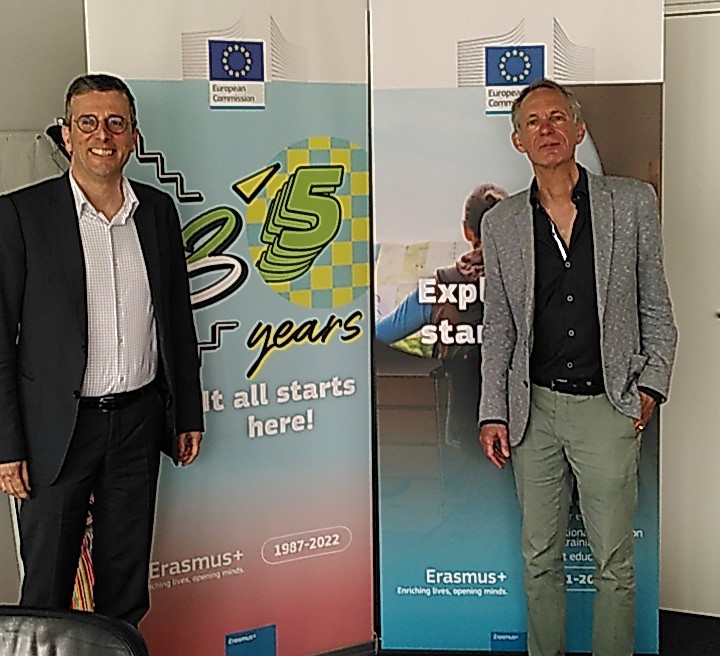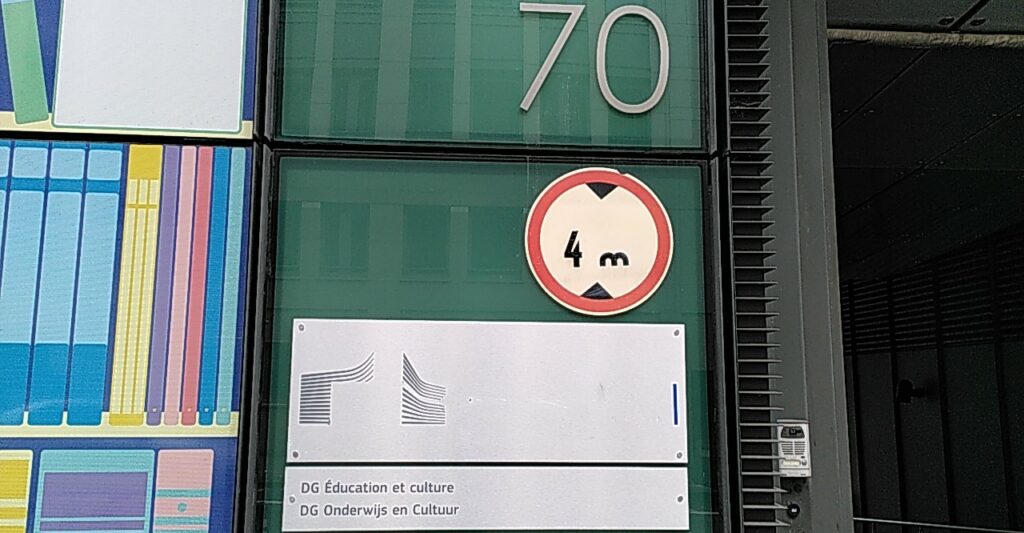“Since the Erasmus programme began, 15 million Europeans have participated in it,” Michael Teutsch tells me in his office in Brussels. With his unit, Teutsch is responsible for coordinating Erasmus+, i.e. directing the national Erasmus agencies in implementing this exchange programme for students and teachers within European higher education. In doing so, he explains how, for example, they now favour the train over flying. That does represent a change from the beginning when the plane was in the Erasmus logo as a symbol of travel, as Alan Smith told me in Bonn.
The Germany-born Teutsch has been working in Brussels since 2001 and has been involved in Erasmus+ since 2017. This programme, which – very Erasmian – enlightens and connects people through education, is considered one of the EU’s most visible success stories. However, I don’t immediately recognise the pride in that success from the facade when I cycle down Josef II Street in Brussels’ European quarter.


Erasmus as a symbol of Europe
Michael Teutsch tells me that Erasmus as a brand is now so strong that it no longer relies on the acronym (European Community Action Scheme for the Mobility of University Students; nor is it now limited to university students). Even the name of Europe’s pre-eminent educator, Desiderius Erasmus, is no longer in every participant’s knowledge. Of course, I think this is a pity. Erasmus’ educational ideas about peace, reason and responsibility still fit very well with those of the EU, and you only have to read Stefan Zweig’s Erasmus biography to see how well Erasmus could be a unifying symbol for today’s Europe.
And speaking of symbols: Michael Teutsch says there is actually no network of former participants in the Erasmus programme, although there are networks for exchange students and interns such as the Erasmus Student Network. In Erasmus’ time, there was a Republic of Letters (Res publica literaria), of people across Europe, who kept in touch with each other remotely. Might not a new Republic of Letters serve as a model for an Erasmus alumni network? Teutsch thinks that sounds rather elitist at first, but is brought to other thoughts by Erasmus’ view that more influence and knowledge actually obliges people to be more responsible.
At the end of our conversation, we put some banners together as a background for a photo taken by an Italian colleague. I thank Michael Teutsch for his hospitality. And how nice and deserving I think it would be if only a small part of all those millions of Erasmus exchangers were to experience something of the Erasmian ideals.
